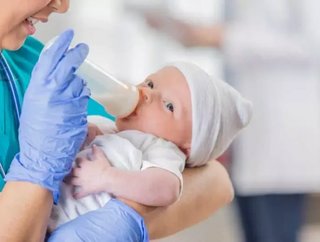KKH and Temasek Foundation Cares launch new milk bank in Singapore

An average of about 350 very low birth weight infants receive neonatal intensive care in Singapore’s public hospitals each year. KK Women’s and Children’s Hospital (KKH) and Temasek Foundation Cares have now consequently launched a new S$1.37 million, three-year pilot for Singapore’s first donor human milk bank programme to support this growing need.
Founded back in 1858, KKH is an exceptional teaching hospital for Singapore’s medical school, and has become a leader in obstetrics, gynaecology, paediatrics and neonatology, delivering patient centred management of high risk conditions in women and children.
In KKH, up to 80% of sick neonates in the Neonatal Intensive Care Unit (NICU) and Special Care Nursery (SCN) have to receive formula milk meant for premature babies, either exclusively or partially, during their hospital stay, due to inadequate supply of breast milk.
Funded by Temasek Foundation Cares, and managed by KKH, the milk bank will therefore collect, screen, process and store breast milk received from donors in the region. The bank will follow strict international guidelines for donor screening, recruitment and education, laboratory testing, processing and storage of the pasteurised milk, before it is dispensed for use.
The programme will provide a ready supply of safe, pasteurised human breast milk, donated for premature and sick neonates of mothers who may be unable to provide adequate breast milk to support their babies’ requirement. Over 20 women have already expressed an interest to support the programme.
Related stories
- Prometic Life Sciences has entered a new partnership with Shenzhen Royal Asset Management
- Healthcare security should start with identity
- Fosun Group and Shanghai Pharma place interest in Arbor Pharmaceuticals
It is hoped that the partnership will benefit 900 babies and enable the recruitment of around 375 mothers who are willing to donate their excess supply of breast milk, which will benefit vulnerable premature and sick babies receiving neonatal care in KKH, Singapore General Hospital (SGH) and National University Hospital (NUH) over this three-year period.
Mr Richard Magnus, Chairman, Temasek Foundation Cares, said, “The Temasek Foundation Cares Donor Human Milk Bank programme provides preterm neonates such access who would otherwise be deprived. This programme forms part of a larger initiative to support the health and social development needs of vulnerable children.”
The venture aligns Singapore with 40 other countries worldwide who have launched official milk banks, which is provided free of charge. All donated milk will also be tracked to ensure donors can be traced if necessary.
Dr Chua Mei Chien, Director, Temasek Foundation Cares Donor Human Milk Bank Programme, and Head and Senior Consultant, Department of Neonatology, KKH, said, “Breast milk is the nutritional standard for infants in the first six months of life, and it contains white blood cells and antibodies that protect the baby against infections and improve their chances of survival. The fat globules in breast milk enable better brain development as well as development of vision.
Some mothers, due to preterm or complicated deliveries, or other pre-existing conditions, are unable to meet the breast milk requirement for their babies. Providing safe, pasteurised breast milk from donors to these vulnerable babies allows them to benefit from this ideal source of nutrition while also significantly improving their chances of development and recovery.”
During the pilot period, the Temasek Foundation Cares Donor Human Milk Bank Programme will adopt international guidelines and protocols by the United Kingdom National Institute of Health and Care and Human Milk Banking Association of North America. These guidelines are the most comprehensive, well recognised and widely practiced by established donor milk banks in leading developed countries.
Donors will be required to undergo a stringent donor screening process as well as education on the handling and storage of the breast milk prior to donation.






